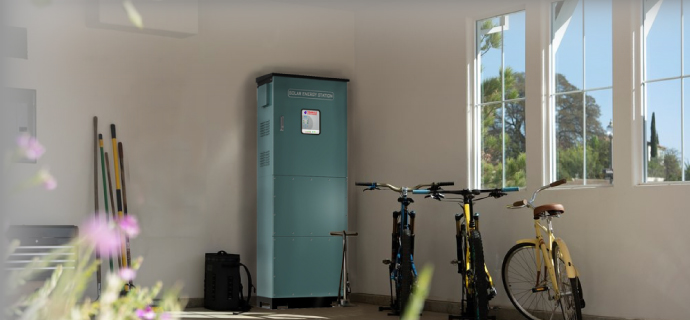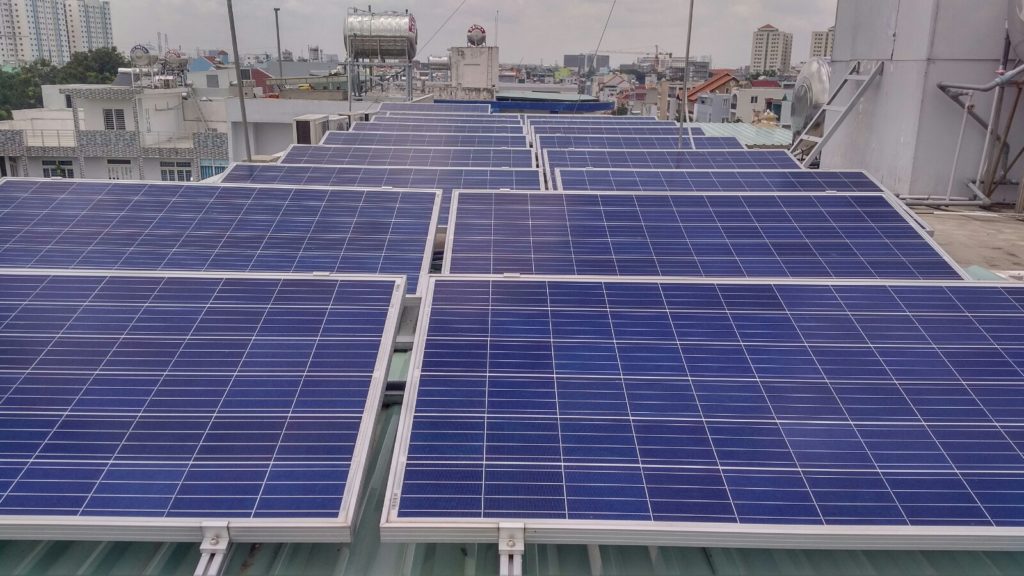In recent years, the beginning of rooftop solar power systems has begun to receive more and more attention from Vietnamese people and businesses because the increasingly cheaper equipment prices have caught the investment ability of Vietnamese people in the near future. when the electricity purchase price is constantly increasing, besides the government’s policies on encouraging investment and development of solar energy take effect and put into practice as Decision No. 11/2017/QD-TTg of the Prime Minister Government and Circular No. 16/2017/TT-BCT of the Ministry of Industry and Trade.
So, who should invest in rooftop solar power? How effective is the investment in solar energy? What are the difficulties, obstacles and risks when investing in solar energy? To answer these questions, experts, consultants, suppliers and installers need to analyze each load and give accurate answers. However, the preliminary analysis can be as follows for each group of loads according to EVN’s current electricity price list as follows:
-
Business load group:
This group includes loads such as Offices, Trade Centers, Office buildings for lease, Restaurants, Hotels, Resorts ..etc. The average electricity purchase price ranges from VND 2,700/kWh to VND 3,000/kWh, even with many loads having higher electricity purchase prices depending on the connection voltage level and the routing of the load. This is the group of loads that buy electricity with the highest price and the characteristics of electricity use are also very suitable for solar power, so considering the purchase price of electricity and setting the point of electricity use, this is the group that benefits the most if Solar investment, payback period from 4 to 6 years. The biggest obstacle of this group is that most of them are high-rise buildings, the roof area is often much smaller than the usable area, so investing in solar energy can only reduce a little compared to the demand for electricity.
-
Production load group:
This group includes the loads that are factories, enterprises, and manufacturing companies. The average electricity purchase price is from 1,500 VND/Kwh to 2,000 VND/KWh, although it is a group that buys electricity at a low price, the demand for electricity is large, the roof is wide, the construction is easy and the investment in solar energy system is Due to the large capacity, the investment rate is low, so the payback period of this load group is about 7 to 9 years depending on the project. Unlike some manufacturing industries, electricity costs account for a large proportion of production costs, if investing in solar energy, investors will save costs and increase the competitiveness of businesses in the market.
-
Group of daily loads:
This group of loads buys electricity according to the ladder electricity price, the more you use it, the higher the average cost of buying electricity, the average household in Ho Chi Minh City is about 2000 VND/Kwh to 2,500 VND/Kwh or fixed unit price with a cost of 2,271VND/kWh. Thus, with this load group, the installation of solar energy is also significantly effective, the payback period is about 5 to 7 years, however, there are still many obstacles for this group of loads when investing in electricity. solar energy such as: (1) The electricity usage characteristics of this load group are often concentrated at night and rarely used during the day while the current electricity price compensation mechanism is not really applied; (2) This group of loads mostly uses single-phase electricity and according to regulations can only install up to 3KWp Solar energy, so it can only meet part of the demand; (3) The roof is quite complicated leading to high investment costs and many roofs are obscured by adjacent houses..etc.
Other added values when investing in solar energy.
In addition to evaluating investment efficiency in terms of finance, payback period. Investors also gain additional values through the installation of a solar power system such as using clean energy, demonstrating their contribution to energy saving and environmental protection, and enhancing the image of investors. business with friends, partners and customers.
Besides, the investment and use of clean energy is also highly appreciated in the case that enterprises want to obtain the certification of energy-saving and environmentally friendly design such as LEED or Lotus for their buildings and factories. LEED or Lotus certification is one of the investment goals of many enterprises producing goods for export to markets such as the US, Japan and European countries.
Group of experts Tran Le


